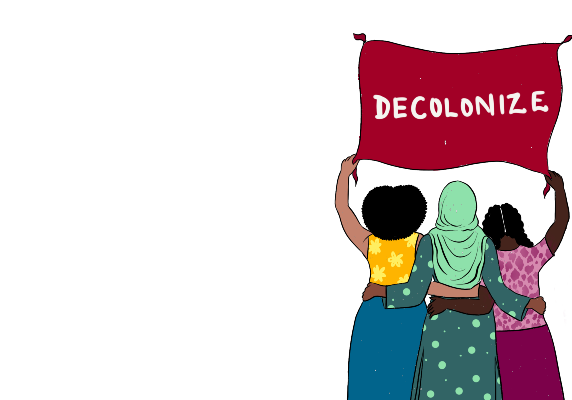It’s time for the sector to nurture equity, diversity and inclusion (EDI) if we are to see real change
The international development sector is used to engaging with external crises and addressing critical societal issues.
However, with the Black Lives Matter movement rippling across the globe in 2020 and the continued and disproportionate impact of Covid-19 within marginalised communities, the sector has been forced to turn the spotlight on itself and grapple with uncomfortable questions around how organisations in this space have replicated and perpetuated cultures and practices that marginalise and exclude both the communities they seek to support, as well as the staff, volunteers,and members they rely on to deliver critical services and interventions.
Bond recently released a report Racism, Power, and Truth which explored the experiences of people of colour who work within the international development sector, and exposed the harmful and racist practices they experienced. This report mirrored calls from around the world for greater and better representation, meaningful equity, authentic inclusion, and restorative justice.
At Bond, we’ve seen the amazing work our members do to tackle issues of exclusion and injustice. And yet, when we look internally at our own organisations and our workforce, it’s clear that there’s a lot more we need to do to nurture equity, diversity and inclusion (EDI) and to achieve real change.
Our sector talks of intersectionality and “Leaving No One Behind”, but are we doing enough to reflect these principles in our workforces? If we want to tackle the world’s biggest challenges, we need to make the necessary internal shifts to better reflect the world around us.
Diversity does not equal inclusion
Many organisations start this journey by focusing on improving representation of different demographic groups across their staff body and leadership groups. Whilst this is a good starting point, it is not enough. Having a diverse workforce does not automatically guarantee an inclusive organisational culture. An inclusive organisation prioritises a strong sense of connection across their staff, values the contributions of all their employees, recognises the benefit of diverse perspectives, and actively works to create environments where all employees are able to show up, be themselves, and know that they will always be seen and heard.
Subscribe to our newsletter
Our weekly email newsletter, Network News, is an indispensable weekly digest of the latest updates on funding, jobs, resources, news and learning opportunities in the international development sector.
Get Network NewsInclusion in the workplace is one of the most important keys to retention. If employees do not feel that their voices are heard, or that their ideas or contributions are seen, valued, and taken seriously in their organisation, they will leave. That is knowledge, talent, expertise, and different perspectives exiting your organisation.
Having an inclusive culture strengthens an organisation from the inside out, making it better positioned to have a positive and less harmful impact both internally as an employer and externally in the work the organisation does to support communities. But again, this alone is not enough – inclusive cultures also need equitable practices to survive.
Inclusion must be intentional and equitable
Building inclusive cultures in organisations must be done with intent and transparency. ‘Commitment’ to inclusion without real action and follow through is inadequate – for example asking for employee feedback cannot be just a tick box exercise, where employees are asked for contributions, but decisions are made by a handful of ‘influential’ or senior voices, and are based on the needs of a homogenous majority.
Being inclusive and equitable means intentionally creating the space and processes that allow for employees who are under-represented or marginalised to make contributions, and for their contributions to carry as much weight as others do in their organisations. It means recognising that employees experience the organisational culture differently, depending on where they sit in the organisation. It means questioning how the organisation does or doesn’t acknowledge and make space for their identities and experiences. It also means acknowledging that existing organisational policies and practices may have negative impacts on under- represented or marginalised employees, and making adjustments and providing support to ensure those employees are treated fairly.
Building better cultures
Research shows that organisations that have a good understanding of EDI and actively integrate it into their cultures and ways of working, have higher employee engagement and are therefore more productive and impactful. By embedding an inclusive approach to their culture and work, organisations can build and strengthen their resilience and relevance. Both are needed now more than ever as organisations in the international development space navigate this unique period of cultural, social, and political change.
Cultural transformation is never easy, but organisations must rise to the challenge and use this time of global reckoning as an opportunity to assess the power and privilege they hold, align their actions with their commitments to equity and inclusion, and build better cultures that work for all, and not just the majority.
Bond is running a new training course on building inclusive cultures to help you and your organisation gain a deeper understanding of equity, diversity and inclusion (EDI) and explore practical strategies and ways of working within the international development context. For more information contact [email protected].
Category
News & Views



